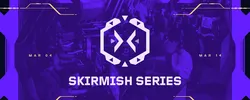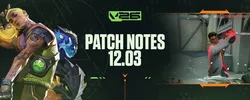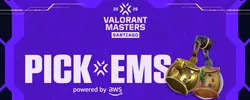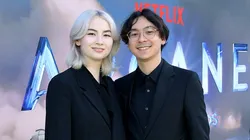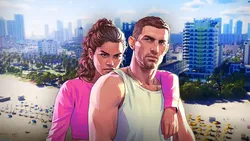Interview with Rodrigo “Dolfo” Oliveira

Carriço: How did you get into esports?
Dolfo: My first interaction with the Esports world was when I discovered OpTic Gaming on Call Of Duty, around 2012. I was watching Call Of Duty tournaments and from there I fell in love with the team, because of the culture that Hector introduced to the team.
After that, I started playing Call Of Duty, going to LANS around 2014/2015, and that was basically my first contact with Esports. Then I started to play CS:GO with some friends, and started to play the game “competitively”. We had a team called Infusion Gaming, and yeah that’s basically how it happened.
Carriço: Why did you choose to become a professional Valorant player?
Dolfo: I wanted to try something new, and with Valorant being announced and released shortly after, I felt it was my prime opportunity to actually do something inside the Esports world.
CS:GO is very “closed”. Either you are really good, not that you also don't have to be good in Valorant, but today in CS:GO either you are really good or you can't do anything in the game.
While in Valorant I feel there is still a margin to not be as “good” as you need to be in CS:GO, but still be able to enter the Esports scene.
Carriço: Can you talk a little bit about your path in VALORANT so far?
Dolfo: I started like everyone else, just playing ranked. After that, I started to know some people on the scene. I made a team with some friends of mine, and we had already played together in CS:GO so we basically all switched to Valorant. After some time those players lost interest in the game.
Then I got to know zePiCzz, and he played the RedBull Campus clutch with us. We placed second in that tournament, and from there on out that five stayed together and we were signed by The Agency Clan.
That team didn't last long, because two of the players that made the switch didn't enjoy Valorant that much at the time, and decided to go back to CS:GO.
Gapo continued to play with us, but we ended up getting GrTw, steadyy, and kidter. We played with this roster for one year, in the Liga Promessa, and the VCT qualifiers. Then I joined EGN STEPUP and well know I’m a free agent.
Carriço: You play as a flex what are some things that make a good flex player at the pro level?
Dolfo: A good flex player needs to be flexible. I think the flex player needs to do what the team wants him to do, even if it isn't really what he wants. When I joined EGN STEPUP I played Skye in the first game, and on the second one was already playing Cypher. We felt it wasn't working so we made a chance, and after that, we did another one.
So basically you need to adapt yourself to the needs of the team, and communicate very well, even if that is a requirement for all the roles. But a flex needs to be able to communicate very well because in most cases flex players will play as an initiator so end up having a lot of information to communicate to their teammates.
Carriço: How do you prepare for opponents?
Dolfo: In the leagues that we played in, especially the Liga Promessa, we didn't do a lot of anti-strating, or similar things. On VCE we ended up doing that more, with the help of HARTik and Blue.
But mainly we would watch their pistol rounds, see their default plays, and then we would build around their defaults. If we saw a VOD where they had an interesting execute we would study it. But we never did a lot of anti-strating against anyone.
Carriço: How important is it to have a great team environment, do you think in order to find success a good team environment outside the game is necessary?
Dolfo: I think it’s important to have a good environment outside of the game. But at the same time, with the passing of time and playing with a lot of people with that I don't have a deep relationship, as I had with the people I played in CS:GO that were my friends. It makes some decisions easier, especially when it involves dropping someone from the team.
It makes those types of decisions easier if it's with a person with whom you just have a professional relationship because some people take those decisions to heart, others not so much, and sometimes balancing those two things becomes very hard.
But overall I think having a good environment outside of the game is always important.
Carriço: What do you think of the rebuild that most organizations in the VCE did, with most of them changing 3 or more players?
Dolfo: Personally, when it comes to teams such as Odivelas and Boavista, since they had the worst results in the league, maybe a rebuild is something that is necessary for them. There are a lot of things that even us that are inside the scene don't end up knowing.
But overall I don't like to rebuild like you said dropping most of your players and starting from scratch, because if there isn't a really strong reason to do that I think we should always keep at least the core together. Then you can get the other necessary pieces to complement that roster.
I think that’s a problem that exists here in Portugal. I don't know if it’s the organizations or the players that make the teams, but they are always searching for that surprise team, that you have just assembled and they will win you the league.
I spent one year playing with the same people, for the Liga Promessa, and then the VCT qualifiers. Having a core and the team playing together for quite some time is the most important thing. We have a great example of that which is RESET. They have a core that has been playing together for quite some time, and then we can fit in a player or two to fulfill a specific role and it works.
Carriço: Last year we didn't have a competitive scene in Portugal, What do you think led to the sudden death of the Portuguese competitive Valorant scene?
Dolfo: I think it was because we “fell into oblivion” for ValorantPt, which is who organizes things in Portugal. And also the fact Riot schedule is done in a way that like things are now we don't have tournaments to play until the next VCE.
They need to revitalize the scene and give authorization for tournament organizers just like we have in CS:GO with DreamHack, ESL, Blast, Faceit, and more. We have a lot of to’s to organize tournaments and multiple competitions.
We need tournaments to play, otherwise, people just stop playing. Right now there is zero incentive for us to be playing the game. Last year we didn't have anything to play, and people basically forget about Valorant. Then the community that we could already have stopped watching Valorant because they don't have anything to watch, and then we need to get those people back to watching the games and be interested in the competitive scene.
Carriço: How important is the VCE for the competitive scene in Portugal?
Dolfo: I think it’s the “step” in the right direction because we in Portugal need something to compete in. Because competing with Spain in a general way is very hard to do. It’s very hard to compete with people that do this as their full-time job, while in Portugal there are only a few people that have Valorant as a full-time job, and can “grind” eight or ten hours per day.
While you compared it to people in Spain, that get paid to play and are in the “same tier” as us. The VCE is the tier one in Portugal, the tier one in Spain is much better. We might be comparable to the tier two in Spain. So it’s very hard to compete with that.
We need a competition where so we can evolve, but as things are everything is done so you can join a team outside Portugal. We need more competitions. VCE alone is not enough.
Carriço: The VCE qualifier rule has been a hot topic. Not allowing any player that played one game in the last VCE Split to play the qualifier. What do you think of the rule, and what are the impacts it can have on the scene?
Dolfo: Personally to this day I still don't understand what was the goal of that rule. I just don't understand, the game is supposedly “open“ to everyone, and we didn't allow some people to play.
After we do that to the people that qualified to play in the last Split, my first reaction when they told me I could play in the qualifier was “ So I can't play, x, and y also can't play?”.
Supposedly the best players were already in the VCE. Now those players that left their organization's cant play the VCE, and the level of the scene is going to fall. There can be great players that weren't in the VCE, and I’m sure there are but lets us compete against them. Let them show us that they are better, let those people have that opportunity.
It makes no sense and I hope that rule is removed in the next Split.
One of the problems that this rule can bring is the power that gives to the organizations. The goal of the players is to start to make some money. If the players start to make some demands/requirements to the organizations, they can just say no and send the player away and the player has nothing else to compete in Portugal.
The organizations basically can do whatever they want, because the players cant go and qualify for the league. That is the biggest problem, the power the organizations start to have.
Carriço: Is it worth it to have an organization in Portugal currently?
Dolfo: Personally after the rule that VCE implemented, I hope we see more mixes entering the league and replacing the organizations. Because if a mix qualifies for the VCE an organization can sign that team and EGN STEPUP did with us, and the slot in the next Split is now owned by ENG and they do whatever they want it with.
Right now if you a mix and qualify for the VCE don't sign to any organization unless the organization offers you really something that is worth it. If you sign with an organization just to say you are signed to one, don't do it because you will be losing a slot, that maybe in the future can be worth some money. So you can lose a slot and then even be dropped from the roster. Because you sold yourself to an organization that in the next Split does whatever they want with you and the slot.
This might not be the case with some organizations, that I've heard people talking well about, like Heracles Gaming. I know they have contracts with the organization, the split is over but they are still under contract and being paid by the organization.
When I was in EGN STEPUP my contract was signed two days before the playoffs. Ok that there were some internal problems at EGN STEPUP. This split didn't go that well and they said sorry about that, so no worries. But they didn't offer anything during the split that was relevant to help me play Valorant.
FTW from what I know also didn't offer a lot, GTZ Bulls I don't know, Odivelas, and Boavista if they offered anything it wasn't much. So overall in the way things are right now it’s not worth it to have an organization.
Because they are not “forced” to pay you anything if you want to be paid anything you will probably be kicked from the team, and it's a warning I leave to everyone, don't sell yourself to an organization unless they offer something that is worth it.
Carriço: What are your goals as a player for the remaining of this year?
Dolfo: For the remaining of the year it was to play the split, but in the worst case where I don't play the split and we don't have a second division if any team from Spain wants me to play there I would go. In the worst-case scenario, I will continue to make content.
Carriço: Do you have any message for the Portuguese Valorant community, or to your fans?
Dolfo: Thanks to everyone that supports me, and guys don't sell your slots to organizations. Produce content pls, do everything you can to make new people interested in the scene.
Carriço: Dolfo thanks a lot for agreeing to do the interview, it was a pleasure talking with you. I wish you the best of luck in the future and hope you can join a team and play the VCE. I also hope I can interview you again in the future.
If you want to check the full interview you can do it here:





